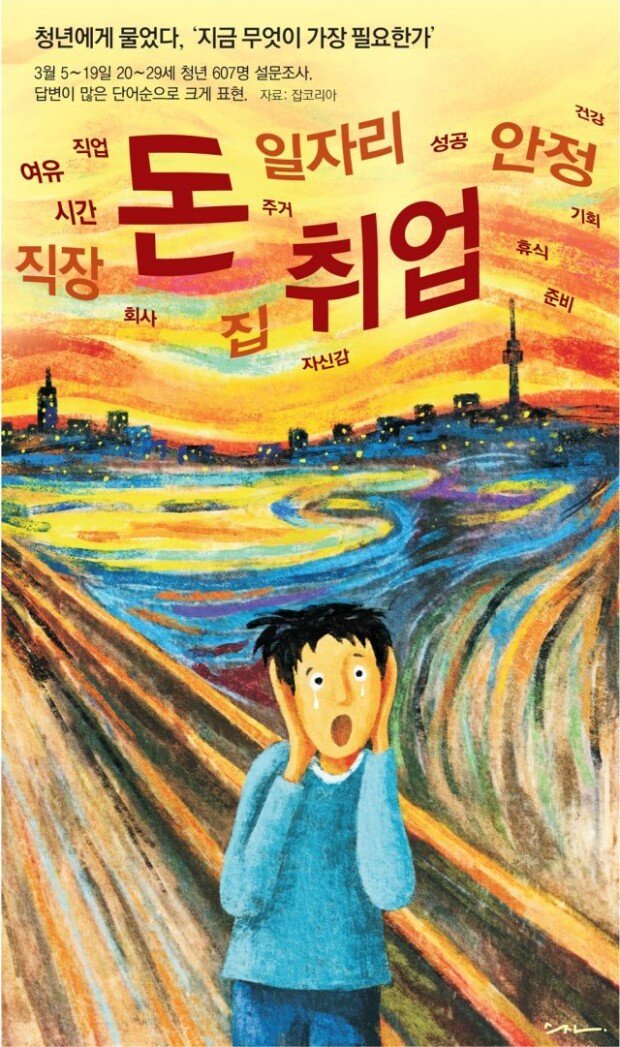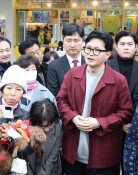Youth Misery Index in Korea reaches highest point ever
Youth Misery Index in Korea reaches highest point ever
Posted April. 16, 2021 07:29,
Updated April. 16, 2021 07:29

Home, cafés, PC cafés, convenient stores, and home: this is how Ahn Ji-wan, a 24-year-old college student dreaming to become a writer, spent the year of 2020. She had to take at least two or three part time jobs to afford her monthly living expenses of 600,000 won, including the 150,000 won rent. “You are eligible for holiday pay once you work at least 15 hours a week. Therefore, business owners are making you work only 14.5 hours,” Ahn said. “I have no choice but to do several jobs.”
Some say young people shun difficult or dangerous jobs, but that’s not the case for her. She is still suffering from carpal tunnel syndrome and arthritis she developed while working at a factory producing masks and hand sanitizers. Seeing a doctor isn’t easy either. “The manager used to say that I am always replaceable, which is very upsetting. I had to struggle to keep up with the pace and overworked myself,” she explained. “It is getting more costly to live, and it is getting harder to get a job.”
Her story mirrors the daily lives of our live-next-door youths and students who have been suffering from lack of job opportunities and rising consumer prices. On Thursday, The Dong-A Ilbo and Hyundai Research Institute calculated the Misery Index for Korean youths in 2020, which stood at 113.36, and it was the highest since 2015. Misery Index was first drawn up by Arthur Okun, an economist from the Brookings Institute, in a bid to quantify the economic quality of life. Our Misery Index for youth was calculated based on the youth inflation index, consisting of perceived unemployment rate, eating out costs and housing expenses for those aged between 15 and 29.
With even part-time jobs becoming rarity and cost of living skyrocketing, economic misery fuels frustration among the young. In a survey conducted by this newspaper and JobKorea, when asked what you are most desperate about, the respondents aged between 20 and 29 said “money” (58), “employment” (33), and “job” (13). Abstract words such as “love” or “dream” were hard to find. When asked if they believe they can get their own house in a few years, 30.1% of respondents said, “impossible.”
Experts say the results of the April 7 by-elections reflect the three miseries inflicted upon the 20s and 30s in our society – extremely rare job opportunities, economic difficulties, and social isolation. They say it is crucial to make a multifaceted effort to expand the social safety net for our youth such as by providing vocational trainings or psychotherapies instead of dismissing it as an issue of unemployment. “The government and the ruling party have been buying younger voters by creating random jobs in public sector or showering them with youth allowances,” said Kim Tae-gi, an economics professor at Dankook University. “We need to focus on vocational education and nurture an environment for the private sector to lead job creation.”
woo@donga.com · balgun@donga.com







